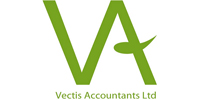HMRC has introduced two simpler income tax schemes for small businesses - 'cash basis' and 'simplified expenses'. They are designed to make it easier for small firms to manage their income tax obligations and be more confident that "they have got their tax right".
Cash basis
'Cash basis' is a way for self-employed businesses (ie sole traders and partnerships) to calculate their income and expenses when completing their Self Assessment tax return.
Cash basis - who qualifies?
To qualify for the scheme, your annual income as a self-employed business must not exceed an annual turnover of £150,000. If your turnover increases above this figure during the tax year, you can remain in the scheme for the rest of that tax year, providing it does not exceed £300,000.
The scheme is not available to limited companies and limited liability partnerships.
Cash basis - how does it work?
You can record your income and expenses over the tax year either on a Cash Basis (ie when money actually enters and leaves your business, whether cash, card payment or cheque) or by using ‘traditional accounting' methods (ie accruals basis - recording income and expenses when you invoice your customers or receive a bill). The choice is yours.
The cash basis scheme has been introduced because it is likely to better suit the cash flow circumstances of many smaller businesses at the end of the tax year. Simply put, they won't have to pay income tax on money that hasn't yet been received.
If you choose to use the cash basis scheme, tick the ‘cash basis’ box on the form when you send your Self Assessment return.
Simplified Expenses
Self-employed businesses can use fixed rates to calculate how much they can claim for certain common types of business expenses in what is known as ‘simplified expenses’. It is worth noting that this is only available if your business and private use is mixed.
Previously, businesses had to calculate the exact business use proportion, which in many cases was complex and time consuming.
Simplified expenses applies to:
- Mileage expenses - You can now claim a standard mileage allowance based on total business mileage during the year;
- Expenses generated by using your home for business - You can now claim a flat rate based on hours spent using part of your home for business; and
- Adjustments for private use of business premises - A flat rate can now be used to cover some costs if you live at your business premises (eg if you run a B&B).
Simplified expenses does not refer to any other types of expenses other than those listed above. All other expenses will still need to be calculated as previously.
Simplified expenses - is it for you?
To qualify for home-use related 'simplified expenses', you must work at home for more than 25 hours a month. While the scheme will be helpful to many business owners, to those who only have one type of expense to claim, the benefit could be limited.
You can use simplified expenses, if it suits your circumstances. If it doesn't, you can carry on as before.
Simplified expenses
Self-employed businesses (sole traders and partnerships) can use fixed rates ('Simplified Expenses') to calculate how much they can claim for certain common types of business expenses if there is mixed business and private use. You can choose to use simplified expenses or calculate your expenses the usual way.
Simplified expenses - record keeping
If you choose to use the simplified expenses scheme, you need to keep a record of your business miles, hours worked at home and/or how many people live with you at your business premises during the tax year.
At the end of the tax year, you calculate your allowable expenses using the flat rates for vehicles, use of home for business or private use of premises and include these amounts in your expenses in your Self Assessment tax return.
Both the cash basis and simplified expenses schemes are optional, so you will need to consider whether your business will really benefit from using them. If necessary, seek advice from your accountant.
Content reviewed by Mike Parkes, technical director, GoSimple Software
